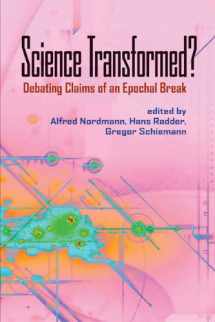
Science Transformed?: Debating Claims of an Epochal Break
Book details
Summary
Description
Advancements in computing, instrumentation, robotics, digital imaging, and simulation modeling have changed science into a technology-driven institution. Government, industry, and society increasingly exert their influence over science, raising questions of values and objectivity. These and other profound changes have led many to speculate that we are in the midst of an epochal break in scientific history.
This edited volume presents an in-depth examination of these issues from philosophical, historical, social, and cultural perspectives. It offers arguments both for and against the epochal break thesis in light of historical antecedents. Contributors discuss topics such as: science as a continuing epistemological enterprise; the decline of the individual scientist and the rise of communities; the intertwining of scientific and technological needs; links to prior practices and ways of thinking; the alleged divide between mode-1 and mode-2 research methods; the commodification of university science; and the shift from the scientific to a technological enterprise. Additionally, they examine the epochal break thesis using specific examples, including the transition from laboratory to real world experiments; the increased reliance on computer imaging; how analog and digital technologies condition behaviors that shape the object and beholder; the cultural significance of humanoid robots; the erosion of scientific quality in experimentation; and the effect of computers on prediction at the expense of explanation.
Whether these events represent a historic break in scientific theory, practice, and methodology is disputed. What they do offer is an important occasion for philosophical analysis of the epistemic, institutional and moral questions affecting current and future scientific pursuits.


We would LOVE it if you could help us and other readers by reviewing the book
Book review



